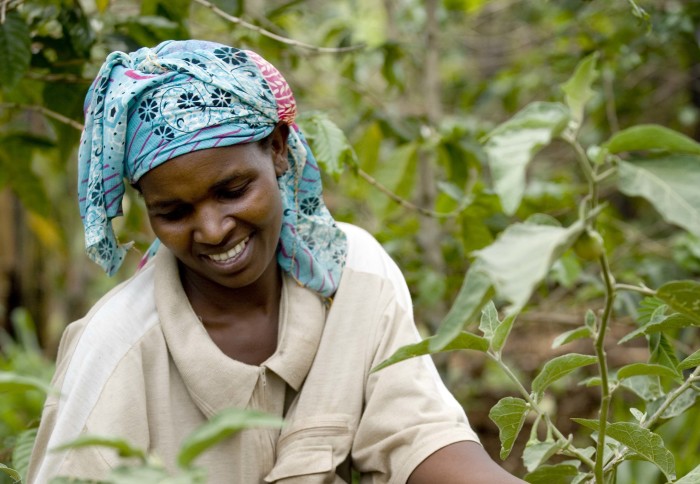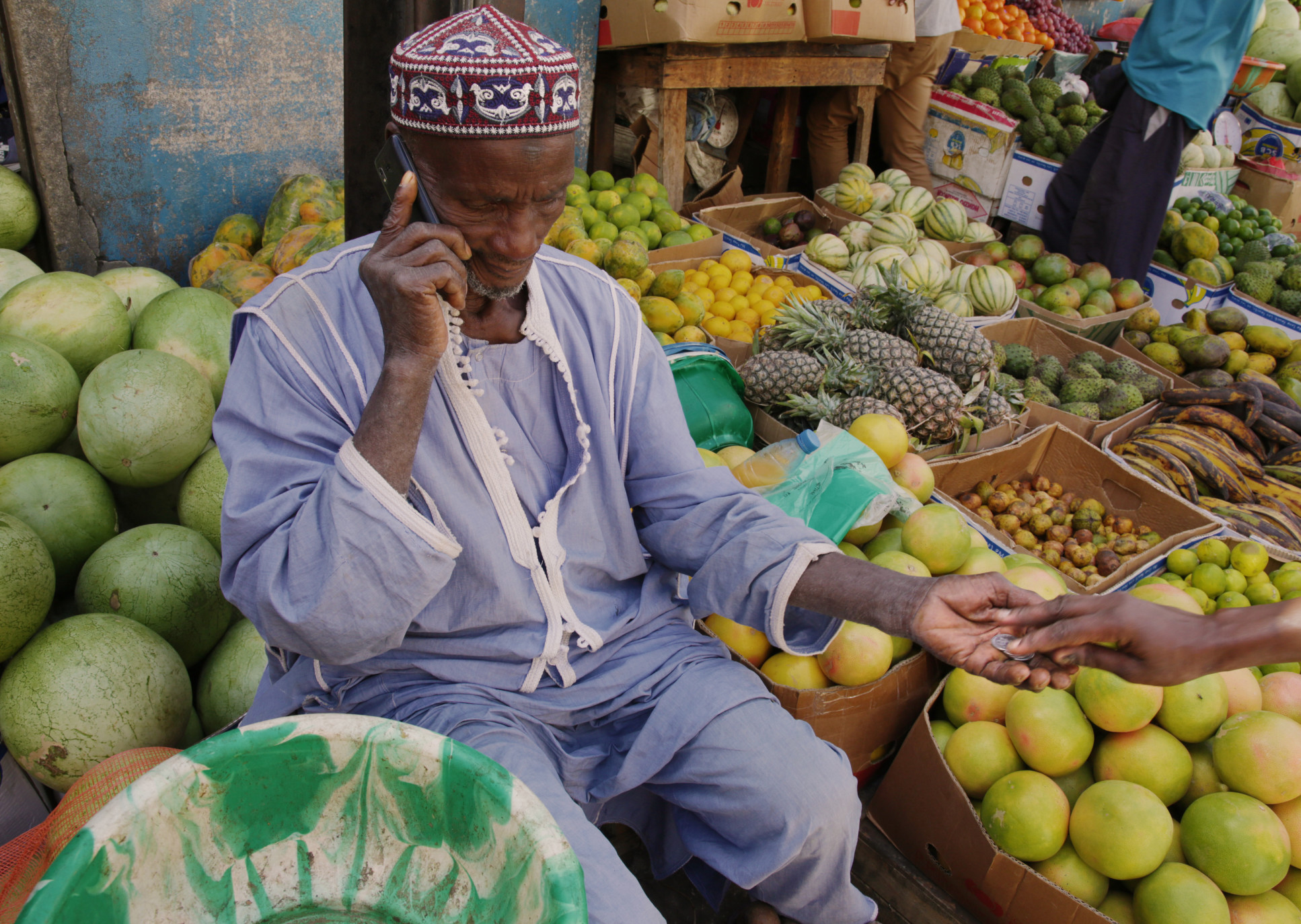Systems approach is key to food security in Africa

A report by the Malabo Montpellier Panel calls on policymakers to rethink African food systems to reduce hunger, malnutrition and poverty.
The Panel convenes 17 leading experts in agriculture, engineering, ecology, nutrition, and food security. It is a collaboration hosted by Imperial College London; the Center for Development Research (ZEF) at the University of Bonn; and AKADEMIYA2063.
The report – titled Connecting the Dots: Policy Innovations for Food Systems Transformation in Africa – calls for a systems approach to the issue, where multiple sectors such as agriculture, health and the environment are considered together.
For a number of years, we at Imperial and others have been advocating a systems approach in relation to major global challenges. The COVID pandemic has now brought the importance of this approach into sharp focus, as we see the interconnectedness of systems when it comes to climate change, social inequalities and food insecurity in Africa. Professor Sir Gordon Conway
In a similar vein, Imperial’s Transition to Zero pollution initiative calls for a systems approach to fighting climate change, taking into account how we produce food and energy, human health impacts and new business models. Meanwhile, the College has recently launched a Global Development Hub to maximise the global impact of its research, education and innovation and to engage with the United Nations Sustainable Agenda 2030.
Imperial’s Professor Sir Gordon Conway is a member of Malabo Montpellier Panel and former Chief Scientific Adviser to the UK Department for International Development.
He comments: “For a number of years, we at Imperial and others have been advocating a systems approach in relation to major global challenges. The COVID pandemic has now brought the importance of this approach into sharp focus, as we see the interconnectedness of systems when it comes to climate change, social inequalities and food insecurity in Africa.
“This report provides key recommendations for policymakers to address the challenges in Africa’s food systems. With the UN Food Systems Summit and COP26 coming up this year, there is a clear opportunity to influence thinking in this area and bring together stakeholders. We must carry this momentum forward and keep sight of our ultimate goal of reducing global hunger and malnutrition.”
2021: An inflection point for food security
In 2019, about one in every five Africans was hungry - a considerable increase from previous years, jeopardising UN Sustainable Development Goal (SDG) number 2 of ‘zero hunger by 2030’.
In 2020, the pandemic exacerbated matters further. Although farming and livestock production has been an important fallback, especially for the urban poor who migrated to rural areas, measures taken by governments to reduce the spread of the pandemic have dramatically exposed the fragility of Africa’s food systems.
2021 has been labelled the ‘super year’, playing host to several large global meetings on issues relevant to food security and improved nutrition. They include the first ever UN Food Systems Summit (UNFSS), the UN Framework Convention on Climate Change (COP26) and the UN Biodiversity Conference. There is therefore a very timely opportunity to align ambitions and targets.

Challenges and opportunities
The flagship report by the Malabo Montpellier Panel begins by setting out the challenges and threats to African food systems transformation. These include increased malnutrition in all its forms, high unemployment especially among young people, climate change and environmental degradation, conflict and protracted crises, and the persistent gender gap.
The report then emphasizes the benefits and opportunities of increasing agricultural productivity sustainably; expanding agro-processing; new technologies and digitalization; and the emerging African science and research agenda.
A systems approach in action
The report identifies four countries that are leading the transition to a more systematic approach to building a nutritious, resilient, inclusive and sustainable food system. The four countries: Ghana, Malawi, Morocco, and Rwanda, have developed innovative approaches to their policy and institutional frameworks to address challenges across a broad range of factors, from food production and processing through to marketing and consumption as well as job creation and access to finance and land.
In Ghana, national coordination among sectors and stakeholders (through the National Development Planning Commission) is complemented with regional and district-level implementation of policies and programmes. In addition to a large national production program (Planting for Food and Jobs), the government has invested in a school feeding program to improve nutrition for children and young adults in school . The country has also instituted policies and legal frameworks to strengthen the quality and safety of food sold and consumed. While farmers receive a fair price for their produce at the National Food Buffer Stock Company, Ghana is also actively seeking to enable greater private sector participation across the food system.
In Malawi, improvements in agricultural productivity have been driven by a successful inputs subsidy program. Dedicated nutrition polices, overseen at the highest levels, have contributed to a marked improvement in the health and well-being of Malawians. In addition, an overhaul of its finance sector, combined with a financial literacy program, has raised the amount of liquidity within the food and agricultural sectors, ensuring their long-term viability.
Morocco’s efforts to enhance the resilience of its food systems have included the expansion of irrigation, land restoration and agricultural insurance. Facilitating access to finance for smallholders and fostering entrepreneurship along the value chain has created a more inclusive environment for young people and women to join agribusinesses.
Rwanda has developed an extensive framework that supports effective coordination between different stakeholders that are delivering activities and interventions in its food systems. The government’s approach centres on encouraging private sector involvement in all activities along the food value chain. Finally, Rwanda’s land tenure reforms have further strengthened the country’s ability to meet demands for food security, healthy diets, and improved livelihoods.
The report concludes with five key recommendations for senior policymakers to reorient Africa’s food systems. It calls for greater coordination among previously compartmentalised sectors such as health, agriculture, environment and education. To sufficiently address the scale of challenges facing Africa’s food system, the report calls on policymakers to forge new pathways by innovating and experimenting with policy interventions. An environment conducive to innovation will allow for the development of creative and original policy and technical solutions by a wide range of stakeholders. Combining innovation with learning will support enhanced policy-making over the long term.
Main image: DFAT, Kate Holt AusAID, 2009 - Olive Sabila Chemutai tends to her tomatoes on her homestead in Kapseror Village, Kapchorwa, Uganda
Article text (excluding photos or graphics) © Imperial College London.
Photos and graphics subject to third party copyright used with permission or © Imperial College London.
Reporter
Andrew Czyzewski
Communications Division